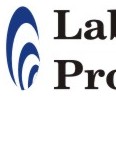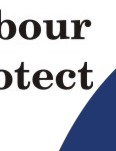 |
 |
 |
 |
 |
|
 |
 |
 |
 |
 |
|
 |
 |
 |
 |
 |
|
 |
 |
 |
 |
 |
|
 |
 |
 |
 |
 |
|
|
|
DISCRIMINATION Unfair discrimination:
The law provides for redress for an *employee who is subject to an
unfair labour practice in the workplace. An unfair labour practice
includes any unfair act or omission that arises between an employer and
employee, involving unfair discrimination, whether directly or
indirectly, against an employee. (*employee
includes an applicant for employment.) Any employer’s policy or practice showing favour, prejudice or bias for or against employees in terms of any arbitrary ground including, but not limited to:
There are two forms of discrimination related to “unfair discrimination”
namely-
Direct discrimination is easily identifiable and involves overt
differential treatment between employees and job applicants on the basis
of arbitrary grounds. For example an employer follows a policy of
remunerating a female employee on a lower scale simply because she is a
women, whereas a male employee is remunerated at a much higher scale for
doing the same work. Indirect discrimination, on the other hand, is not as easily recognisable as it is a more subtle form of discrimination. It involves the application of policies and practices that are apparently neutral and do not explicitly distinguish between employees or job applicants but that, in reality, have a disproportionate and negative effect on certain individuals or groups. The laws also emphasise that:
Essentially one has to give consideration to the impact of actions,
policies and procedures when evaluating discriminatory practices rather
than the intention thereof. Steps to take when unfair discrimination takes place: Any employee who feels that he/she has been unfairly discriminated against, or that an employer has contravened the laws, can lodge a grievance with their employer. The matter can be referred to the CCMA within six months of the unfair discrimination taking palce when the matter cannot be satisfactorily resolved at the workplace. If the CCMA is not able to resolve the dispute through conciliation, the matter can either be referred for arbitration (if both parties agree) or to the Labour Court for adjudication. Information contained herein in is based on documentation available from the CCMA. >> Labour Law >> useful links >> advice >> harassment >> disabilities >> pregnancy >> HIV/Aids |
|
|National Assistance: 0860 LABOUR/ 0860 522687
|
||||
| To join... | ||||
| (the Membership Fee is only R85pm): | ||||
|
||||